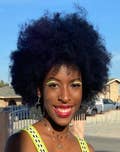All Boys Aren't Blue by George M. Johnson
This series of personal essays depicts what it was like for author George M. Johnson to grow up as a queer Black man in America. Johnson’s intimate and honest voice acts as a guide for both queer boys and allies alike to understand the heteronormativity expected of Black men, institutional violence, and on the brighter side, Black joy. I especially enjoyed Johnson’s experiences with his intersectional identity at an HBCU where he pledged to the Black fraternity Alpha Phi Alpha. There is also a level of accountability placed on non-queer and non-Black readers to not look down upon, but embrace the communities they aren’t a part of by learning the history and the language. As of last November, school libraries in eight states have banned this “memoir-manifesto,” labeling the book as pornographic for its mentions of consensual sex and sexual abuse.
Ghost Boys by Jewell Parker Rhodes
This powerful and poignant story follows a 12-year-old Black boy named Jerome who is killed by a white Chicago police officer who mistakes his toy gun for a real weapon. After his death, which mirrors Tamir Rice’s, Jerome becomes a ghost and meets Emmett Till. Till guides Jerome on his journey of processing trauma and learning how historical racism played a role in his passing. Later on, Jerome finds out that the only living person that can see him is Sarah, the daughter of the police officer that shot him. She can see all the ghost boys and realizes that they struggle to come to terms with their deaths. As his case goes to trial, Jerome looks over his family as they fight for justice. Rhodes does a great job of displaying how a Black child’s death, especially at the hands of police, can impact not only the family but the community at large. It also acts as a great teaching moment for non-Black children to understand the nuances of police brutality. School districts are banning the book for its depictions of police and police brutality with a Florida police union deeming it “propaganda that pushes an inaccurate and absurd stereotype of police officers in America.”
We Rise, We Resist, We Raise Our Voices edited by Wade Hudson and Cheryl Willis Hudson
This anthology features poetry, short stories, essays, and art by 50 various authors and illustrators from various ethnic and racial backgrounds. A particular piece, “A Talkin’–To” by Jason Reynolds, sums this up beautifully: “Everything bad and frightening and loud will always hide when you hold your head up.” The Hudsons had this book published through their independent publishing company, Just Us Books, which produces Black interest books and multicultural books for children and young adults. This book is one of many on a list to be banned by Eanes Independent School District in Texas because it “promotes discrimination.”
Monday's Not Coming by Tiffany D. Jackson
Best friends Claudia and Monday are inseparable, and they lean on one another for just about everything. On the first day of school, Monday is nowhere to be found. Two weeks later, Claudia still hasn’t seen her best friend and realizes something must seriously be wrong. On the search for answers, Claudia learns that Monday’s family isn’t offering up any answers, there’s no way to contact her, and that Monday has been erased from all of her school’s records. This story is suspenseful and at times violent, yet filled with love and perseverance. Though fiction, this story is reminiscent of the many Black girls who go missing every year in the United States and of the lack of media coverage and police involvement with such cases. Parents of children in the Loudoun County School District rallied to get this book banned because of its mentions of sexual abuse and violence. One mother, Patti Menders, even said, “We care about our children. Please get these dirty books out of our schools.”
The Stars and the Blackness Between Them by Junauda Petrus
After being caught with the pastor’s daughter, native Trinidadian Audre is sent to live in Minneapolis, Minnesota with her father. Though fearful of losing her connection to home and starting a new school in a different country, she meets Mabel, a girl questioning her sexuality and facing an unknown illness. The two quickly become friends, as Mabel leans on Audre for emotional support and for healing practices passed down by Audre’s grandmother. What starts as a friendship becomes much more. This book is a love story at heart, but also takes readers through themes of ancestral connection to the Earth adding an extra layer of beauty to the narrative. This book was among 850 others that Texas Republican State Representative Matt Krause wanted to have banned in schools across the state. ●
